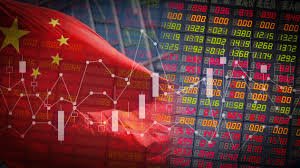The influence of the state in financial markets has a significant impact on global strategies, affecting investment decisions, economic stability and international cooperation.
In current interconnected global economy, the lines between politics and finance are becoming increasingly blurred. This is particularly evident in China, where the Chinese Communist Party (CCP) has significantly increased its influence over financial institutions like China International Capital Corp. (CICC). This growing state control presents both challenges and opportunities for global businesses, which may require a rethink of their strategies in an environment where political considerations are as crucial as economic ones.
The Rise of Political Influence in Financial Markets
The trend of state influence over financial markets isn’t unique to China, but the scale and implications of this control are particularly pronounced there. Under President Xi Jinping, the CCP has made it clear that financial institutions must align with the party’s broader goals of “common prosperity” and social stability. For institutions like CICC, this means a shift away from market-driven capitalism towards a model where political loyalty and alignment with state objectives are paramount.
For global businesses and investors, this political influence brings a new layer of complexity. Decisions that might have once been made purely on economic grounds—such as where to invest, which markets to enter, or how to structure a deal—now require careful consideration of the political landscape. Understanding and navigating these political currents has become a critical component of global strategy.
Strategic Implications for Global Businesses
The increased political control over financial markets in China has several strategic implications for multinational corporations and investors:
- Risk Management: The growing influence of the CCP over financial institutions introduces new risks that businesses must manage. These include regulatory risks, where sudden changes in policy can impact operations, and geopolitical risks, where tensions between China and other countries could lead to sanctions or trade barriers. Companies must develop robust risk management frameworks that account for these political factors.
- Compliance and Governance: As political influence increases, so does the importance of compliance and corporate governance. Companies operating in China need to ensure that their practices align with the CCP’s priorities, such as data security, environmental sustainability, and social responsibility. This requires not only adherence to local laws but also a deep understanding of the political environment and its potential impact on business operations.
- Strategic Flexibility: In an environment where political considerations can quickly change, businesses need to remain flexible. This might involve diversifying supply chains to reduce dependence on any single market, or developing contingency plans for different geopolitical scenarios. Strategic flexibility allows companies to adapt to changes in the political landscape without suffering significant disruptions to their operations.
- Opportunities for Alignment: While political influence can introduce risks, it also creates opportunities for businesses that align with the state’s goals. In China, sectors like green energy, technology, and infrastructure are receiving strong government support. Companies that can align their strategies with these national priorities may find new avenues for growth and partnership.
The Global Perspective: A New Era of State Capitalism
The growing role of state influence in financial markets represents a shift towards a new era of state capitalism, where governments play a more active role in directing economic activity. For global businesses, this means that traditional strategies based purely on market forces may no longer be sufficient. Instead, companies must consider the broader political and social context in which they operate.
In the case of China, this shift has significant implications for global capital flows. As the CCP exerts more control over financial institutions, international investors may need to reassess their exposure to Chinese markets. At the same time, businesses that can navigate these political currents effectively may find themselves well-positioned to capitalize on China’s continued economic growth.
Conclusion: Navigating the Political Landscape
The increasing intertwining of politics and finance in China offers a valuable lesson for global businesses: in today’s world, strategy cannot be divorced from politics. Understanding and navigating the political landscape is no longer just an aspect of risk management, it’s a core component of strategic planning.
For multinational corporations and investors, the challenge lies in balancing the opportunities presented by a market as large and dynamic as China with the risks associated with its evolving political environment. By developing strategies that account for political influence, aligning with state priorities, and maintaining strategic flexibility, businesses can not only mitigate risks but also unlock new opportunities in one of the world’s most important markets.
In the end, success in this new era of state capitalism will belong to those who can skillfully navigate the political currents, leveraging their understanding of both market dynamics and political realities to drive sustainable growth.
